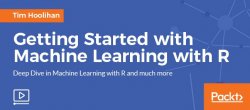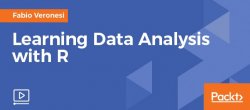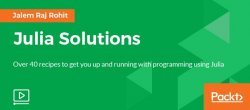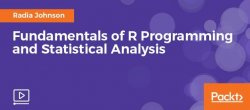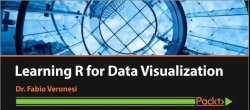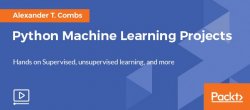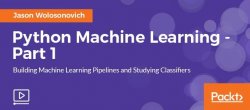
Build R packages, gain in-depth knowledge of machine learning, and master advanced programming techniques in R
About This R Video tutorial
- This video course showcases the power and depth of R programming when it comes to high performance and data analysis
- It covers concepts of data analysis, machine learning, and statistical modeling
- Develop R packages and extend the functionality of your model
Mastering R Programming In Detail
R is a statistical programming language that allows you to build probabilistic models, perform data science, and build machine learning algorithms. R has a great package ecosystem that enables developers to conduct data visualization to data analysis.
This R video course covers advanced-level concepts in R programming and demonstrates industry best practices. This is an advanced R course with an intensive focus on machine learning concepts in depth and applying them in the real world with R.
We start off with pre-model-building activities such as univariate and bivariate analysis, outlier detection, and missing value treatment featuring the mice package. We then take a look linear and non-linear regression modeling and classification models, and check out the math behind the working of classification algorithms. We then shift our focus to unsupervised learning algorithms, time series analysis and forecasting models, and text analytics. We will see how to create a Term Document Matrix, normalize with TF-IDF, and draw a word cloud. We’ll also check out how cosine similarity can be used to score similar documents and how Latent Semantic Indexing (LSI) can be used as a vector space model to group similar documents.
Later, the course delves into constructing charts using the Ggplot2 package and multiple strategies to speed up R code. We then go over the powerful `dplyr` and `data.table` packages and familiarize ourselves to work with the pipe operator during the process. We will learn to write and interface C++ code in R using the powerful Rcpp package. We’ll complete our journey with building an R package using facilities from the roxygen2 and dev tools packages.
By the end of the course, you will have a solid knowledge of machine learning and the R language itself. You’ll also solve numerous coding challenges throughout the course.




